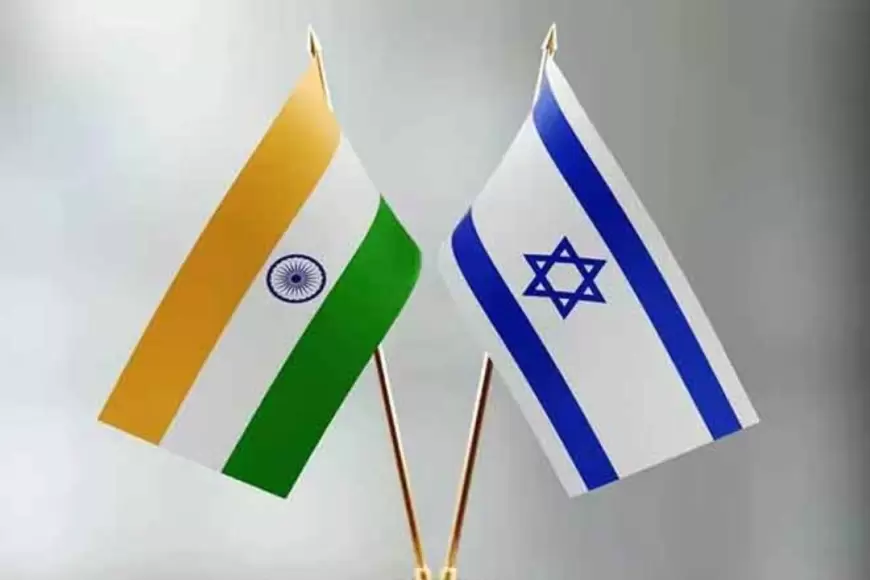Why India Always Support Israel - A Strategic Partnership Unveiled
India and Israel share a complex and evolving relationship that has grown significantly since the establishment of diplomatic ties in 1992.
Introduction
India and Israel share a complex and evolving relationship that has grown significantly since the establishment of diplomatic ties in 1992. Their partnership spans various sectors, including defense, technology, agriculture, and more. This comprehensive article explores the historical context, key areas of cooperation, the reasons behind India's support for Israel, challenges faced in maintaining this relationship, and the potential for future growth.
Historical Background
1. Early Relations: India and Israel did not have diplomatic relations until the early 1990s. India recognized Israel in 1950, but formal relations were established only in 1992.
2. Shift in Policy: The end of the Cold War and India's economic liberalization in the early 1990s led to a reevaluation of its foreign policy, including its stance towards Israel.
Key Areas of Cooperation
1. Defense and Security: Defense cooperation is a cornerstone of the India-Israel partnership. Israel is a major supplier of defense equipment to India, including drones, missile defense systems, and small arms. India's robust defense capabilities and Israel's technological innovations have forged a formidable alliance.
2. Technology and Innovation: Both countries are known for their technological prowess. India benefits from Israel's expertise in agriculture technology, water management, and cybersecurity. Collaboration in research and development has yielded significant breakthroughs.
3. Counterterrorism: India and Israel face similar security challenges, including terrorism. They collaborate on intelligence-sharing and counterterrorism efforts, recognizing the importance of a united front against terror threats.
4. Trade and Investment: Bilateral trade has grown significantly over the years, with both countries exploring opportunities in sectors like pharmaceuticals, information technology, and renewable energy. Economic cooperation is a vital aspect of their partnership.
Why India Supports Israel
1. Strategic Interests: India's support for Israel is driven by shared strategic interests. Both countries see each other as stable partners in a region marked by volatility. A robust India-Israel alliance bolsters their respective positions in the global arena.
2. Counterterrorism: India values Israel's experience in dealing with terrorism, as both countries have faced terrorist threats. The exchange of intelligence and best practices enhances their ability to combat this common menace.
3. Technology and Innovation: Israel's technological advancements align with India's goals for economic growth and development. Collaborations in areas like agriculture and water management have yielded tangible benefits for India.
4. Energy and Agriculture: India looks to Israel for expertise in areas such as agriculture and water management, which are vital for its development. Israeli innovations in drip irrigation and desert agriculture are particularly relevant to India's agricultural landscape.
5. Global Politics: India's support for Israel is often viewed in the context of its evolving foreign policy and its desire to engage with multiple nations. It reflects India's willingness to diversify its partnerships and pursue its national interests.
Challenges and Future Prospects
1. Palestinian Issue: India's support for Israel has not come without criticism, particularly regarding the Palestinian issue. Balancing its relations with Israel and the Arab world poses diplomatic challenges. India has traditionally supported the Palestinian cause while simultaneously deepening ties with Israel. Striking this delicate balance requires deft diplomacy.
2. Domestic Factors: Domestic political considerations, including India's sizable Muslim population, influence its stance on Israel. Indian policymakers must navigate these sensitivities while managing the relationship with Israel.
3. Changing Dynamics: The evolving geopolitical landscape may impact India-Israel relations as India seeks to maintain a delicate balance in the region. Factors such as Iran's influence and the shifting alliances in the Middle East introduce uncertainties.
Future Growth and Prospects
1. Expanding Trade: India and Israel can further boost economic ties by exploring new avenues for trade and investment. Strengthening economic cooperation is mutually beneficial and contributes to their shared prosperity.
2. Innovation and Research: The collaboration in technology and innovation can be deepened through joint research initiatives, academic partnerships, and innovation hubs. This would not only benefit the two nations but also have global implications.
3. Defense Collaboration: Both countries can continue to enhance their defense partnership by exploring joint ventures, technology transfers, and co-development of defense systems. This contributes to regional stability and security.
4. Diplomatic Outreach: India and Israel can engage in proactive diplomatic efforts to address regional challenges. Multilateral forums provide opportunities for constructive dialogue and conflict resolution.
5. People-to-People Contacts: Encouraging cultural exchanges, tourism, and educational partnerships can foster greater understanding and goodwill between the people of India and Israel.
Conclusion
India-Israel relations have come a long way since the establishment of diplomatic ties. While the partnership is driven by strategic interests and mutual benefits, it is not without its challenges. India's support for Israel continues to evolve as it navigates the complex dynamics of the Middle East and its broader foreign policy goals.
The deepening of ties between these two nations in defense, technology, agriculture, and other sectors reflects their commitment to a strong and prosperous partnership. While challenges persist, the potential for further growth and cooperation remains promising, with both countries poised to play important roles in shaping the future of their region and the world.
In an ever-changing global landscape, India and Israel find common ground in pursuit of shared goals and objectives, making their relationship a testament to the power of diplomacy and cooperation in a complex world.

